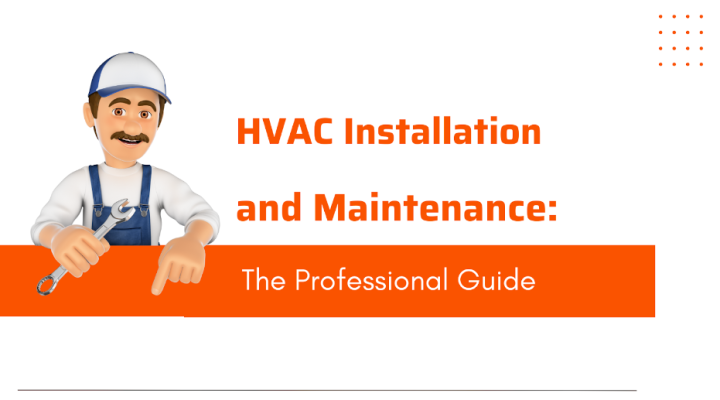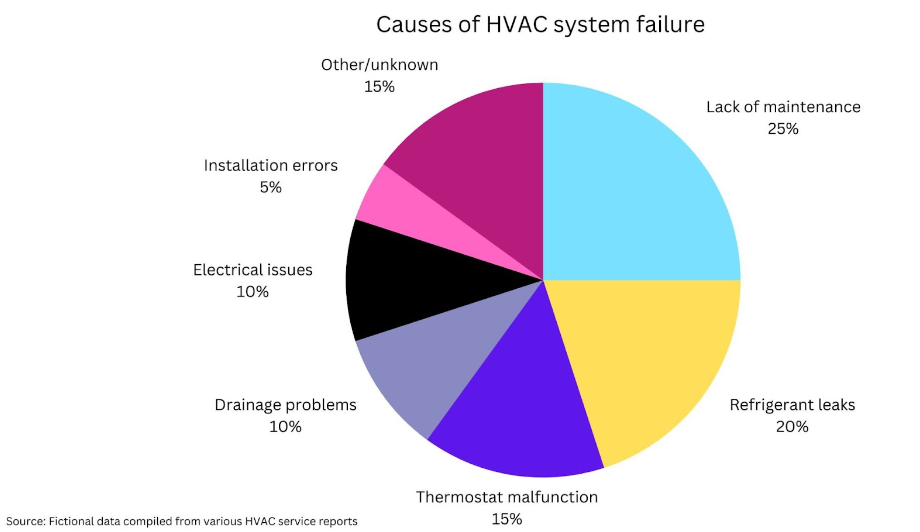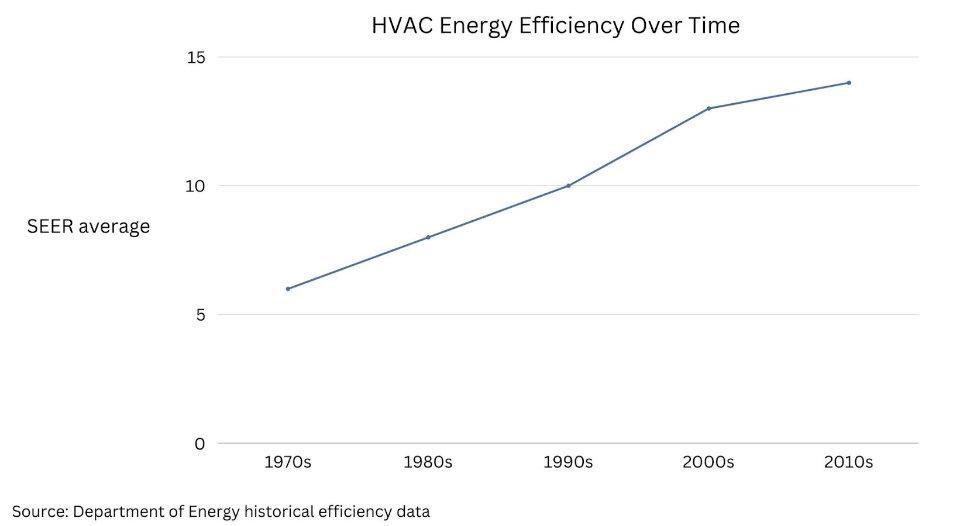
A HVAC (heating, ventilation, and air conditioning) system is essential for keeping your home conditioned for comfort. However, installing and maintaining such a system might seem like an daunting task to the casual eye.
The truth is that you can pull off HVAC maintenance with some basic knowledge and the right tools. This article is an ultimate guide to everything you should know about HVAC installation and maintenance.
Why Professional HVAC Installation Is Important

HVAC systems need to be installed correctly to perform properly. If not, they might get overworked or won’t produce as much hot or cool air as required. Besides, the system will be less dependable and will require more repairs in the long run.
Also, large buildings that often require specialized systems for zoning and controls might need skilled hands. For such buildings, working with a commercial HVAC installation service provider is vital. Only professionals should handle such complex HVAC installations.
With that said, here’s why you should hire a professional HVAC installer:
- Better efficiency – A professional has the skills to optimize your AC unit’s efficiency and performance to help you minimize monthly utility costs.
- More comfort – An expert installer will ensure your AC unit adequately covers your entire house. They can do zoning and controlling to get you the desired results.
- Safe operation – HVAC systems, like other equipment, require safe operation. A trained person has the right PPE and skills to safely install your HVAC system.
- Compliance with codes – There are HVAC installation codes and standards that you should stick to. It is possible to fall short of these standards if you opt to DIY.
- Warranties – By DIY with HVAC installations, you run the risk of losing your warranty. Manufacturers will consider warranties if the equipment is handled by a professional.
Regular Maintenance Tasks That Are Essential
With HVAC systems, installation is one thing and maintenance is another. Poor or lack of maintenance of HVAC systems can affect performance while increasing your electricity consumption. Thus, knowing basic maintenance tasks can be helpful.
Here are some maintenance procedures to keep in mind:
- Replacing filters – Air filters usually become dirty and clogged after every three to six months. Failure to replace them will reduce efficiency by 15%.
- Cleaning coils – Evaporator coils can also be dirty and fail to absorb heat from the air inside the house. Regular cleaning can help reduce corrosion and maintain them.
- Inspecting ductwork – Ducts should always be intact to avoid leakages. You need to inspect them regularly and repair them if necessary.
- Servicing motors – Motors that keep the HVAC system cool can also gather dirt. You should clean them and lubricate parts regularly to avoid corrosion.
- Checking airflow – Always ensure that vents are unobstructed. The system’s airflow should always be balanced according to the manufacturer’s recommendations.
- Verifying controls – Controls like thermostats and humidistats also require regular inspection to ensure proper functions and for battery replacements.
Common HVAC Problems and Their Solutions
Now that you know the regular maintenance tasks, it is time to look into the potential HVAC problems. We’ll also look into the potential solutions to these common issues.
Problem 1: Reduced airflow
Solution: Remove the two screws at the bottom of the AC unit to access the air filters. You can then clean debris on all four filters or replace them. If replacing, ensure the gray mesh faces the air compressor before screwing the door back.
Problem 2: Thermostat malfunction
Solution: Replace the batteries to see if the thermostat will function better. If not, then it’s probably faulty and requires reprogramming to ensure proper temperature range.
Problem 3: Leaks
Solution: Coils, evaporators, heat exchangers, and refrigerants, can all have leaks. If you find any leaks, ensure that you clean, seal, and recharge.
Problem 4: Unusual noise
Solution: Start by checking your ductwork if you hear any unusual noise. Then, secure any loose connections or consider installing noise-canceling material.
Problem 5: Frozen coils
Solution: Check if the airflow is optimal and the refrigerant charge is perfect. Also, clean the coil if it’s corroded and insulate the ductwork.
Tip: While assessing a problem, always classify it as either high or low-risk. You can DIY on low-risk problems like clogging but should always contact a professional to handle high-risk work like leaks.
Innovations and Trends in HVAC Technology

There are various trends happening in the HVAC industry. Manufacturers are aiming at producing smarter and more energy-efficient systems. With this, knowing the latest innovations in this industry can be helpful.
These include:
- Smart monitoring – The development of WiFi-enabled systems is making remote controlling easier. You can now monitor and control these systems on smartphones.
- Zoned comfort – Using artificial intelligence in HVAC systems is helping customize temperature requirements for different rooms. Zoning with different controls for each room increases comfort.
- Predictive maintenance – AI is also supporting the monitoring of HVAC systems to easily predict failures and prevent them.
- Variable speed controls – The automatic control of speed systems depending on energy requirements helps save energy by 30%.
- Cleaner refrigerants – New EPA regulations recommend the use of eco-friendly refrigerants in place of ozone-deflating ones.
- Renewable energy – The use of renewable sources of energy like geothermal and solar helps in carbon footprint reduction.
Frequently Asked Questions
When can I DIY in HVAC maintenance?
You can clean or replace parts that aren’t sealed like air filters. However, sealed parts are delicate and require a trained professional to handle.
How often should I upgrade my system?
You can replace your system if it is old, typically 15 or more years old. It is also advisable to upgrade if the system requires frequent and costly repairs.
When should I replace my air filters?
This will depend on the manufacturer’s recommendations for your specific model. It is however advisable to do it every 1-3 months for better efficiency.
How often should I clean my ducts?
EPA discourages the cleaning of ducts. However, if cleaning is the only option for you, ensure you hire a professional to do it.
Key Takeaway
Proper HVAC installation and maintenance come with great benefits. It ensures optimal performance, high energy efficiency, fewer repairs, and better indoor comfort. You can work with a trained professional to ensure your HVAC system functions well.
If you need professional help with installing and maintaining your HVAC system, our team at Enoch HVAC is available for any HVAC requests you might have. Given our skillset, you can trust us to handle your system with care to keep it running perfectly.
Leave a Reply